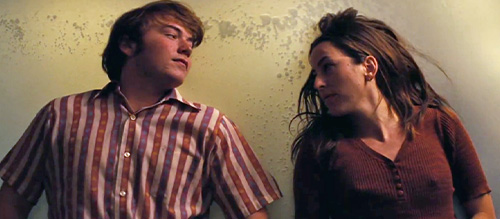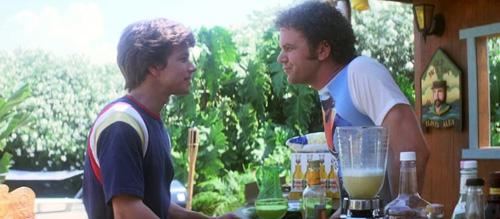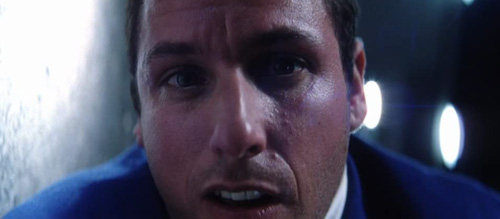Paul Thomas Anderson Films Ranked
6. Licorice Pizza (2021)

Set against the backdrop of 1970s San Fernando Valley, Licorice Pizza feels like a return to the style of Paul Thomas Anderson’s earlier films, wherein the director provided a snapshot of a specific place or theme. The plot is less about telling a singular story and instead follows the same characters through vignette-style adventures. Musician Alana Haim stars alongside Cooper Hoffman, son of the late great Philip Seymour Hoffman (a regular Anderson collaborator), both in their feature film debuts.
Hoffman plays Gary Valentine, a charming young actor with an insistent personality akin to Max Fisher from Wes Anderson’s Rushmore. As he queues for his high school photo, he takes a shine to the photographer’s assistant, Alana (Haim). The two begin hanging out over the summer and an awkward first love blossoms.
Hoffman delivers an instantly likeable performance with enough charisma to have you smiling throughout. Haim is also sensational, emerging as a bona fide movie star who we will likely see again very soon. Bradley Cooper makes an appearance too, as the unhinged film producer Jon Peters, bringing that familiar tension found in all of Anderson’s films.
The age-gap romance between a 28-year-old woman and a 15-year-old boy has proven controversial however, and while praise has been afforded to Anderson for his handling of the subject matter, Licorice Pizza has proven to be a divisive release that is more representative of this filmmaker’s style and skills than it is universally praised, and for this reason sits in the middle of his filmography.
5. Boogie Nights (1997)

Anderson’s second film levels up from Hard Eight (1996) in every single way.
Usually, it takes directors a few films to settle into their groove, but Anderson establishes his with the very first shot – a near 3-minute single take that floats through an exotic nightclub, introducing us to key characters, and setting the film’s vibrant tone, instantly immersing us into its diegetic space. If the 70s could be contained within a single building, it’s here, showcasing the same electric energy that directors such as Martin Scorsese perfected much later into their careers. The opening is no fluke, and this mastery continues throughout.
Boogie Nights exhibits the thriving 70s porn industry. At pornography’s epicentre is producer Jack Horner (Burt Reynolds) on the search for a new star. He meets Eddie (Mark Wahlberg) and instantly takes a liking to him, casting him in his next production. Eddie, now known by his stage name Dirk Diggler, becomes a porn sensation. Things look up for Dirk – but over the course of the film, issues get bigger and friendships are severed, resulting in a climax that highlights the darker parts of stardom.
The film plays as a who’s who of actors in their youth, and each actor successfully brings their character to life. Picking a favourite would be difficult as they all bounce off each other triumphantly, a credit to each of them and an early sign of Anderson’s talent for handling star-studded casts.
4. Punch-Drunk Love (2002)

By 2002 Adam Sandler had carved out a certain image of himself – the crudely funny frat boy with little more to give. Despite occasional commercial success, most of his films were critically panned. So, no doubt there was confusion when people found out he was cast in Paul Thomas Anderson’s Punch-Drunk Love. Any reservations were surely silenced within minutes of seeing him on screen however, as Sandler delivered a staggeringly good performance that commanded the screen with a quiet rage and ever-present sense of unpredictability.
Adam Sandler plays the socially awkward Barry, a lonely man who is easily fascinated by simple things. From a harmonium he finds on the street to a loophole he exploits to get an abundance of frequent flyer miles, Barry is a far cry from typical protagonists. His life is constantly weighed down by his seven dominating sisters who isolate him with little empathy. Barry gets a glimmer of hope when he meets one of his sister’s co-workers, Lena, played by Emily Watson; she takes the time to appreciate his unique way of living, suggesting Barry might not be as alone as he feels.
It’s common for a filmmaker to get you to root for a character, but it’s rare for one to so firmly place you in that character’s shoes and allow you to truly experience the world through their eyes. The chaotic sound design plays into the immersion of the whole film and, coupled with the fluidity of the camera movement, results in an effect that is beyond anxiety inducing. This is all made worthwhile through the moments of pure bliss between Barry and Lena: in these brief moments Barry (and by extension the viewer) is finally allowed to breathe.
Punch-Drunk Love is a sublime film that speaks to anyone who has felt overwhelmed by a world seemingly against them.
Recommended for you: Top 10 Adam Sandler Performances

